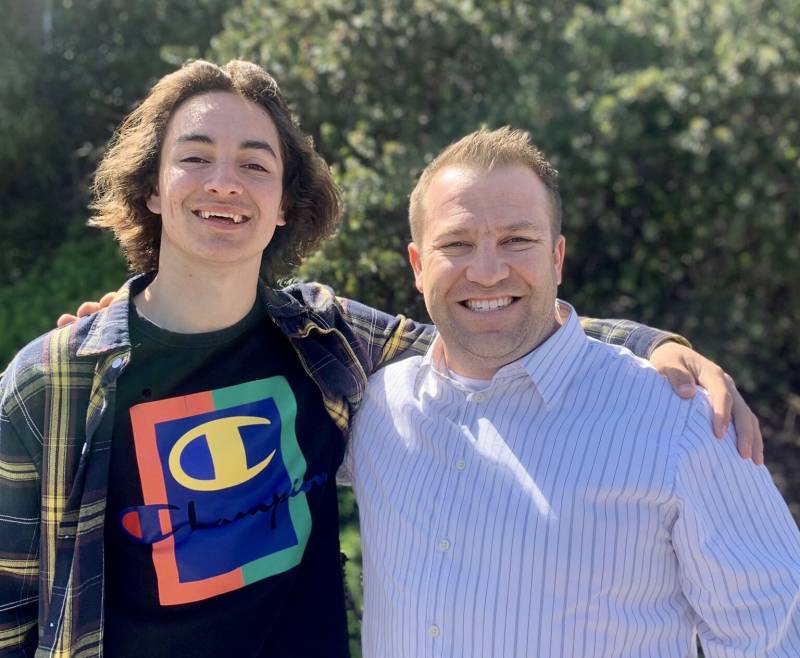As it turned out, algebra “and a whole bunch of other random stuff” were next, so the flame of Nick’s academic interest dimmed back to its usual flicker. Most of the time, he said, he does what he has to in school because he knows it’s important to graduate, not out of real curiosity.
A pandemic mindshift
Johnson calls that “playing the grade game.” He wants teachers to consider what it would take to fan the flames of every student’s interests instead of focusing on points and grades as motivation — which doesn’t work for many kids anyway.
Johnson said that during the first year of the pandemic, while teaching in his garage and staring at blank Zoom boxes, he had no choice but to tackle that issue head-on. He said it took a mindset shift on both his assignments and classroom management. Instead of seeing himself as a judge who calculates points and assigns grades, he began thinking of himself as a sherpa guiding students through unfamiliar knowledge and skills.
With the return to in-person learning, Johnson carried that new perspective with him. This year, his ninth-grade English classes created a grading contract focused on effort and growth. Every progress report period, students discuss with Johnson what mark they believe they earned. That’s what goes into the gradebook.
“I’m not adding up points. I’m not adding up the percentages. I’m not giving punitive penalties for late work. I’m trying to keep it really simple,” Johnson said.
And with less time spent enforcing compliance, he can devote more energy toward finding ways for each student to learn and giving them timely feedback. Johnson said his students’ participation levels are similar to before he changed his grading policy, but his relationships with students are more positive and collaborative.
Hearing his teacher describe this approach, Nick was surprised. “I just wish I had Mr. Johnson as a freshman (in English class). I didn’t know he did that.”
Nick also said Johnson’s policy appealed to him more than when teachers give an option to revise assignments for a better grade. He said the feedback for assignments usually comes weeks after submitting, and he would need to revise while the next assignment’s deadline also looms. “It’s just so overwhelming. It’s like, I’ll take my D, because am I going to risk another 12 hours on this paper just for the chance I get a C?”
“That’s what I’m talking about there,” Johnson replied. “He’s playing the grade game. Because he’s forced to play the grade game.”


